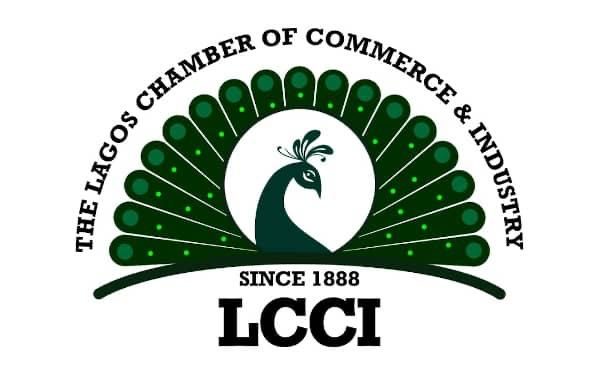The Lagos Chamber of Commerce and Industry (LCCI), Nigeria’s premier business advocacy group, has issued a strong economic assessment for the first quarter of 2025, warning of persistent structural challenges threatening business sustainability, investor confidence, and national economic resilience.
The briefing was delivered by the President of the Lagos Chamber of Commerce and Industry, Mr. Gabriel Idahosa, FCA, and held at Commerce House, Victoria Island, Lagos, on Thursday, April 17, 2025.
In his address, Mr. Idahosa emphasized the Chamber’s ongoing commitment to policy advocacy and protecting the private sector.
“We are here not only to assess the state of the economy but to propose actionable recommendations that can empower the private sector and drive national growth,” he stated.
Global Economic Outlook: Caution Ahead
With geopolitical tensions and the resurgence of tariff wars—especially the United States’ 14% tariff regime—Mr. Idahosa warned of significant downside risks.
“Nigeria must respond strategically. Our non-oil exports to the U.S., worth over N323 billion in 2024, face potential threats,” he said, urging diplomatic engagements and trade diversification.
He also called on the government to actively leverage the African Continental Free Trade Area (AfCFTA) and reduce dependence on a few trade partners.
Domestic Growth Still Below Potential
The economy recorded a 3.84% GDP growth in Q4 2024, the highest in three years, primarily driven by the non-oil sector. However, the Chamber warned this is still not enough to address Nigeria’s employment and poverty challenges.
“This growth figure, while welcome, is insufficient to create the kind of jobs our young population desperately needs,” Mr. Idahosa noted.
He recommended further support for key productive sectors like agriculture, mining, and manufacturing.
Monetary Policy & Inflation Outlook
Although the Central Bank held its Monetary Policy Rate (MPR) at 27.5%, inflation spiked again to 24.23% in March 2025, driven by energy and logistics costs.
“Rate hikes alone cannot fix inflation. We need to fix the real economy—the sectors that produce food, goods, and jobs,” Mr. Idahosa said.
Foreign Exchange Market & Reserve Pressures
The Naira showed marginal stability, but the Chamber warned that the stability was fragile due to falling oil receipts and dwindling foreign reserves.
“Our reserves fell by $2.57 billion in just three months. This is unsustainable unless oil production and diaspora remittances improve,” Mr. Idahosa warned.
He commended the CBN’s improved transparency but urged deeper reforms to bolster forex inflow and investor confidence.
2025 Budget and Rising Debt Concerns
Mr. Idahosa described the N54.99 trillion “Budget of Restoration” as ambitious but cautioned against its feasibility, especially given that debt servicing and recurrent costs exceed revenue projections.
“Capital spending may suffer if borrowings continue to fund consumption instead of infrastructure. Our debt must start working for us,” he said.
He urged that borrowings be strictly project-tied and that the private sector be incentivized to invest in infrastructure.
Oil and Gas Sector: Opportunity Amidst Volatility
The Chamber highlighted the urgent need to maintain refining gains and fully operationalize local refineries.
“We must stop exporting crude and importing refined products. Our economy cannot continue absorbing that FX pressure,” Mr. Idahosa said.
He called for continued support for the Naira-for-Crude agreement and policy stability in the downstream oil sector.
Power Sector Reforms: Key to Competitiveness
LCCI reiterated that Nigeria cannot build a $1 trillion economy with its current power framework.
“We need to fast-track state-led power generation and attract renewable energy investors with the right incentives and licenses,” he said.
Ports and Maritime Logistics: System Overhaul Needed
The Chamber expressed serious concern about rising port costs, inefficiencies, and the manipulation of the electronic truck call-up system (Eto).
“Ports must become trade enablers, not barriers. The Eto system must be cleaned up, and new cargo scanners deployed immediately,” Mr. Idahosa demanded.
He also pushed for the National Single Window implementation to streamline port operations and boost revenue.
MSMEs Under Pressure
Micro, Small, and Medium Enterprises (MSMEs) are being squeezed by power costs, inflation, and security concerns.
“We’ve seen MSMEs shut down or lay off workers. Government must step in now with reliefs—particularly around electricity tariffs, subsidies, and access to finance,” Mr. Idahosa said.
ICT and Innovation: A Missed Opportunity Without Reform
Mr. Idahosa called for bolder steps to develop Nigeria’s digital economy.
“Tech is our future. We must regulate for innovation, protect digital assets, and resolve recurring infrastructure sabotage like cable cuts,” he said.
The President of LCCI closed by thanking the media for their partnership in advancing public discourse and advocacy.
“Together, with government, media, and business working in sync, we can reshape Nigeria’s economy for inclusive growth,” he concluded.















